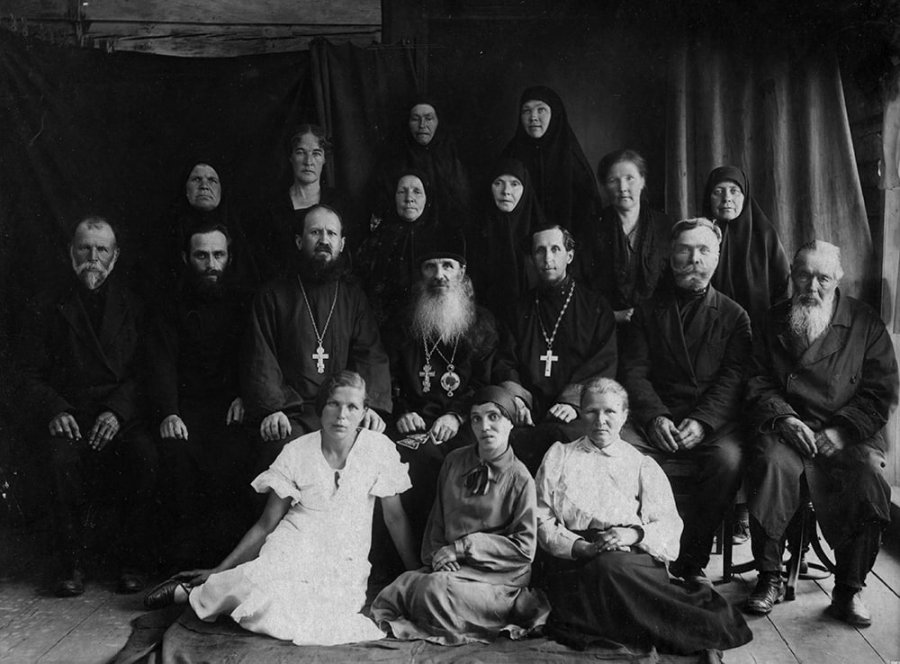
On March 11, 1937, Patriarchal Locum Tenens Sergius (Starogorodsky) decreed the retirement of the last functioning Edinoverie bishop. Let us recall what was happening to Old Believer parishes in the bosom of the Moscow Patriarchate in those years, which led to the abolition of the episcopate, and assess how the situation has changed since then.
The problem of having its own bishop for Edinoverie parishes was one of those that arose almost simultaneously with Edinoverie itself.
As early as 1781-82, monk Nikodim of Starodubie raised the question of granting Old Believers a bishop directly under the authority of the Holy Synod. Such petitions were made repeatedly, but they were not implemented until almost 140 years later, namely, at the Local Council of 1917-1918, which determined that "the parishes of Edinoverie shall be administered by a special Edinoverie Bishop". It did not take long for this decision to be fulfilled, and on June 16 (3), 1918, in the Trinity Cathedral of the Alexander Nevsky Lavra in Petrograd, Patriarch Tikhon of Moscow, assisted by other hierarchs, consecrated archimandrite Simon (Shleev) "according to the old books" as Bishop of Okhta, the first Edinoverie bishop.
Later other bishops were also ordained, but we shall dwell separately on Vassian (Veretennikov). The future bishop Vassian was born in 1877 into a Edinoverie peasant family that lived in the province of Nizhny Novgorod. From the age of 16 he was a sacristan in the Edinoverie church in the village of Pavlovo (now the town of Pavlovo), and later taught chanting. At the age of 33 (1910) he was ordained priest in the Edinoverie church of the village of Rudlevo, Danilovsky uyezd, Yaroslavl Province, where he served until September 20, 1926 when he was ordained by Archbishop Andrey (Ukhtomsky) of Tomsk together with Bishop Lev (Cherepanov) of Nizhny Tagil as a Edinoverie bishop of Satka. Bishop Vassian tried to unite Edinoverie under his leadership. On December 29, 1933, by decree of Metropolitan Sergii (Stragorodsky), the Deputy Patriarchal Locum Tenens, Bishop Vassian was entrusted with the management of the Kerzhensk and Mstyorsk dioceses. Thus, in the mid-1930s, he was already ruling all the Edinoverie parishes on the territory of the USSR, with the title of Bishop of Satka and Kerzhensk.
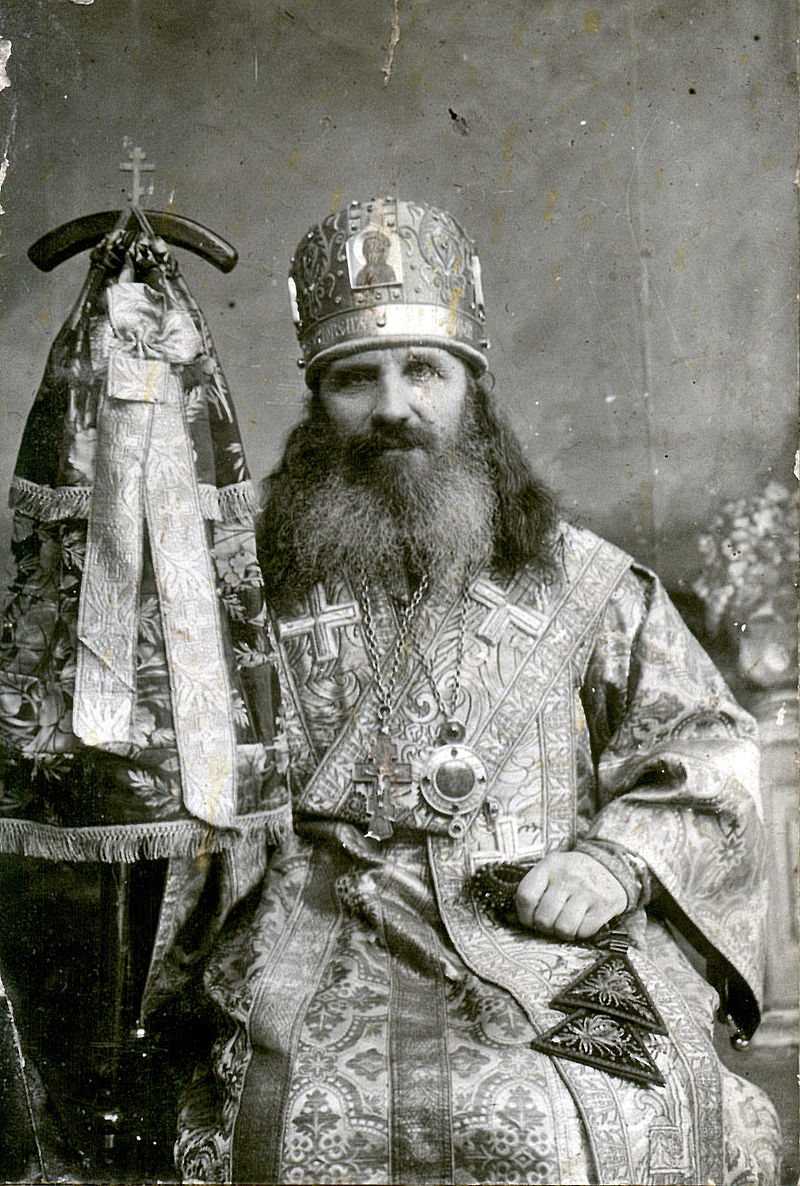
Unfortunately, this and other important events in the history of Edinoverie took place during the turbulent years of godless rule, which could not but affect the course of further events. Because of deacon and part of the parishioners' denunciation Vassian was arrested on 2 March 1936 and in April of that year was sentenced to 10 years in a labour camp. In a little less than a year, on 11 March 1937, Metropolitan Sergius (Stragorodsky), the same Patriarchal Locum Tenens, ruled: "1. In view of the absence of His Eminence Vassian (Veretennikov) of Satka from the diocese, to retire him from the administration of the Edinoverie parishes and to have judgment upon him in the future. 2. The management of Edinoverie parishes in each diocese shall, until further notice, be entrusted to local Archpastors on a common basis. To what extent such a formulation was correct - I do not judge, but at the time of the arrest of Bishop Vassian the other Edinoverie bishops had either already passed away or were in the camps. The next year, 1938, he was shot for "anti-Soviet agitation" (rehabilitated in 1965).
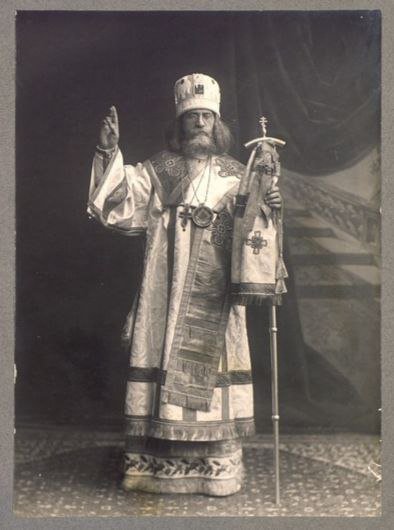
Alas, the abolition of the episcopate, which had existed for nearly 20 years, was not the last blow to Edinoverie.
In the 1920s and 30s almost all of Russia's Edinoverie parishes were dismantled. In 1931, for example, the Trinity-Vvedenskaya congregation in Moscow, once famous for its printing press, was abolished. In Leningrad the same year St Elijah Church in the Volkov Cemetery was closed, followed the next year by the closure of St Nicholas Cathedral on Marata Street. In accordance with Bolshevik policy in the 1920s, monasteries, including those of Edinoverie, were closed. In particular, the St. Nicholas and All Saints' monasteries in Moscow were closed in 1922. Only the Church of the Intercession in the village of Maloe Murashkino in the Nizhny Novgorod diocese was never closed down during the Soviet years.
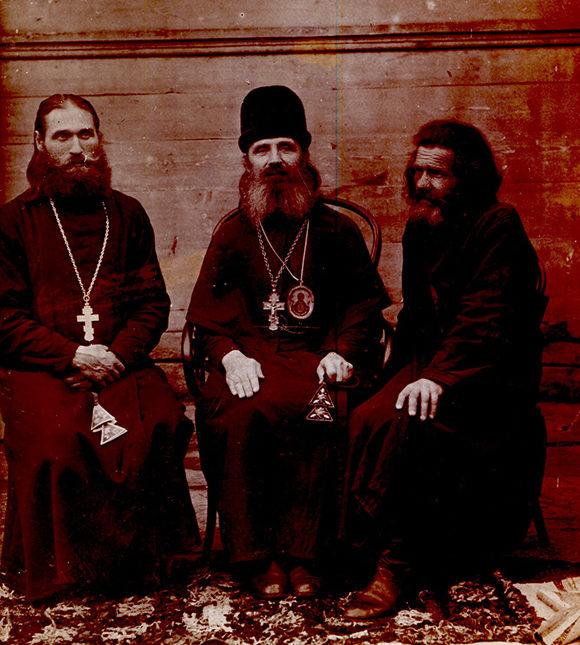
Also in the 1980s there were still services "the old way" in St Nicholas Church in the Rogozhsky cemetery in Moscow and in the church in the village of Zlynka in Kirovograd region, Ukraine. By the way, in addition to Edinoverie faithful, members of the Novozybkovo hierarchy (now Russian Old Orthodox church) had to to pray in St Nicholas Church along with Pomorian Old Believers, due to which the church was nicknamed "terem".
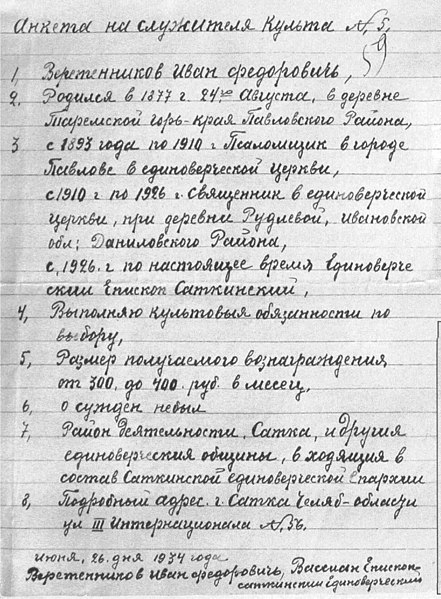
I assume that the almost complete annihilation of Edinoverie was the result of an exceptional zeal in the struggle "against religious remnants". The reason for this may have been a particular aversion to the spirit of Renovationism and Sergianism among the Edinoverie flock as the most conservative part of the Russian Church.
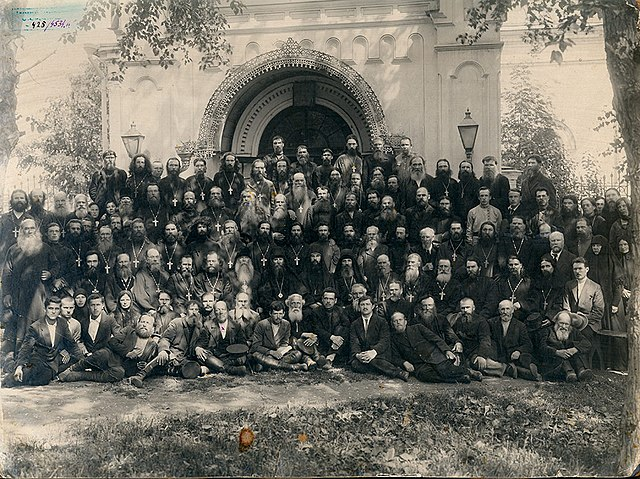
But with God's help Edinoverie has not fallen into oblivion. The epochal decision of the Local Council of 1971 to remove the anathemas of the Great Council of Moscow, although extremely late and not attracting a decisively large number of Old Believers into the fold of the Russian Church, certainly gave new impetus to the sprouting of the uprooted Edinoverie. It is possible that a Edinoverie bishop would have given an even greater impetus, but today, in times of almost complete freedom of action (equality, the actual abolition of the infamous rules of Metr. Platon) and a living initiative from below, coming from the laity, not from official institutions, the need for a bishop is not felt so acutely. It is not for nothing that Edinoverie has been able to grow to several dozen parishes and communities without him.
I am certain that work on the consolidation of these communities and the study and dissemination of Old Orthodoxy is not only useful, but also necessary, in view of the intensive attempts of the newly emerged renovationists to catch up with their positions, as well as of the secularization in general.
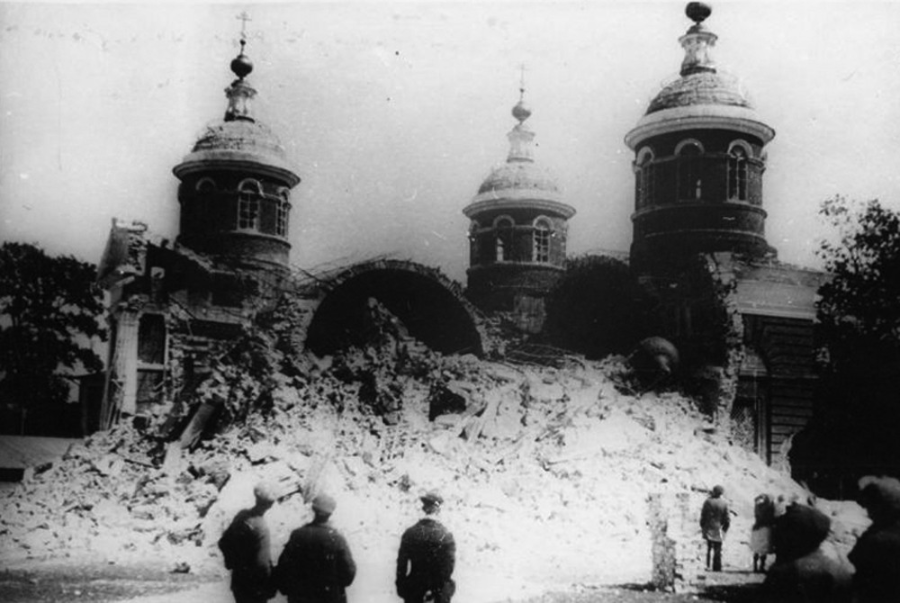
Ivan Pisarev


